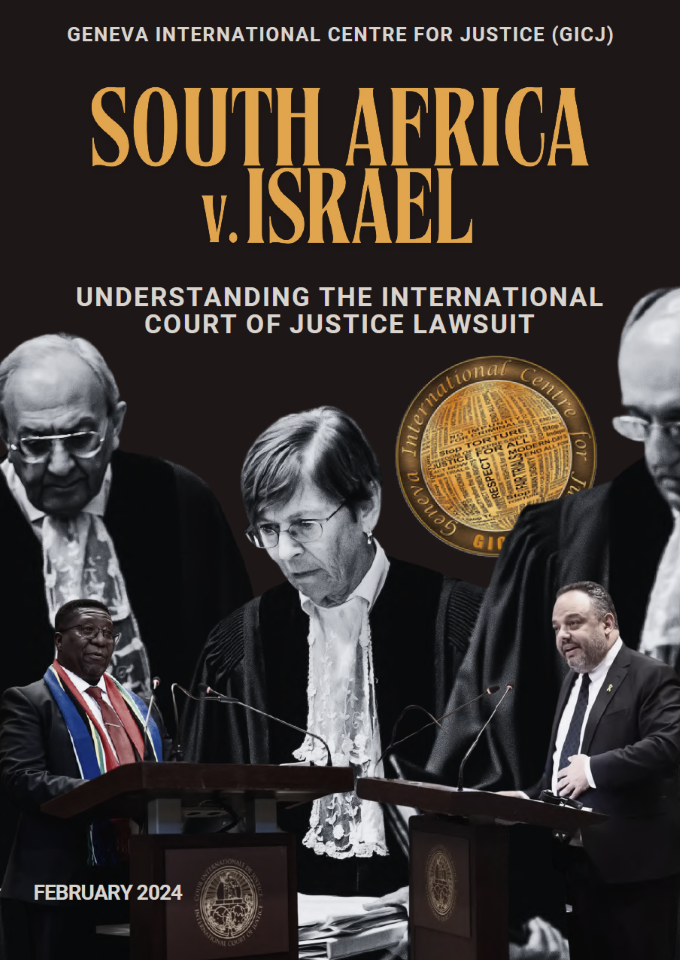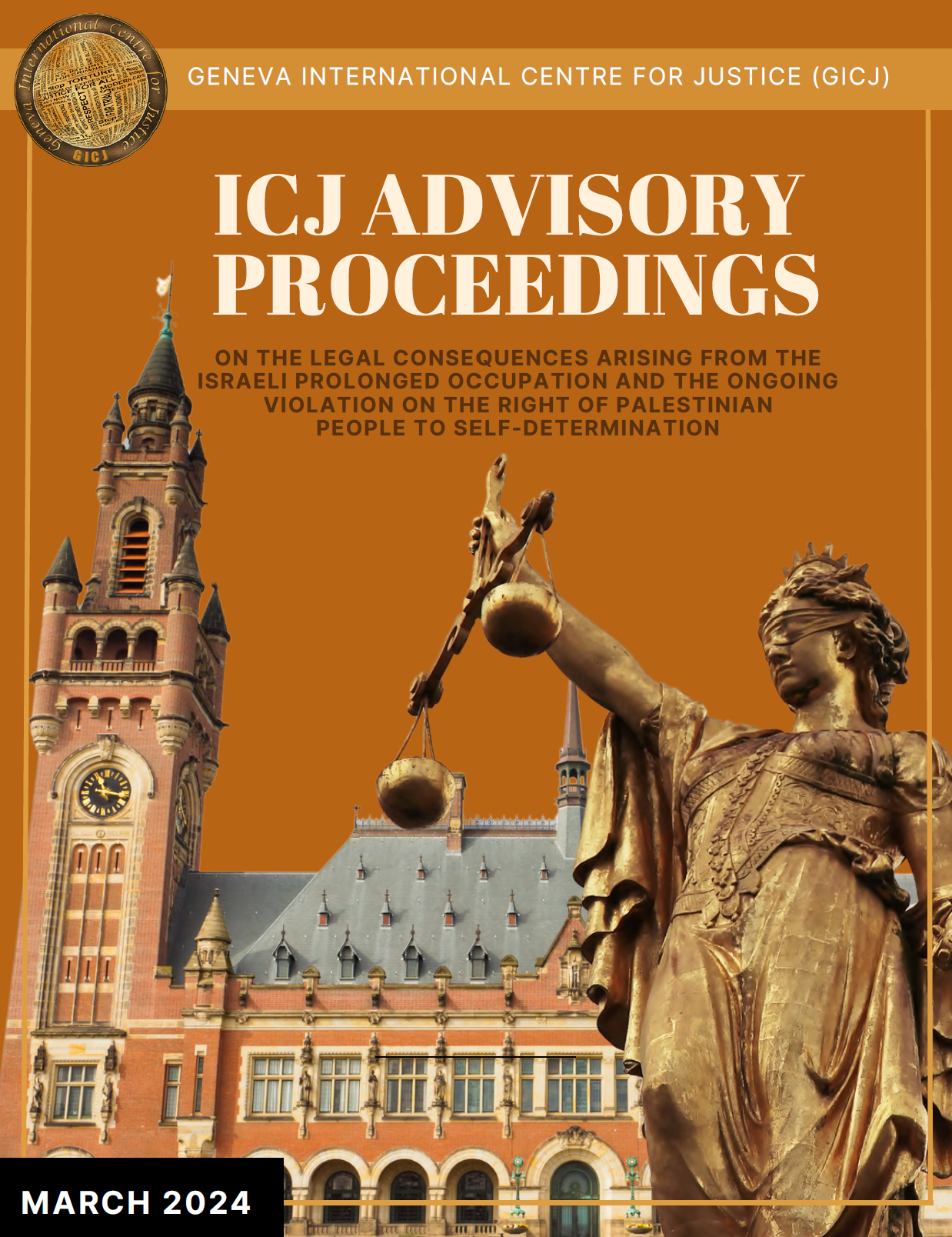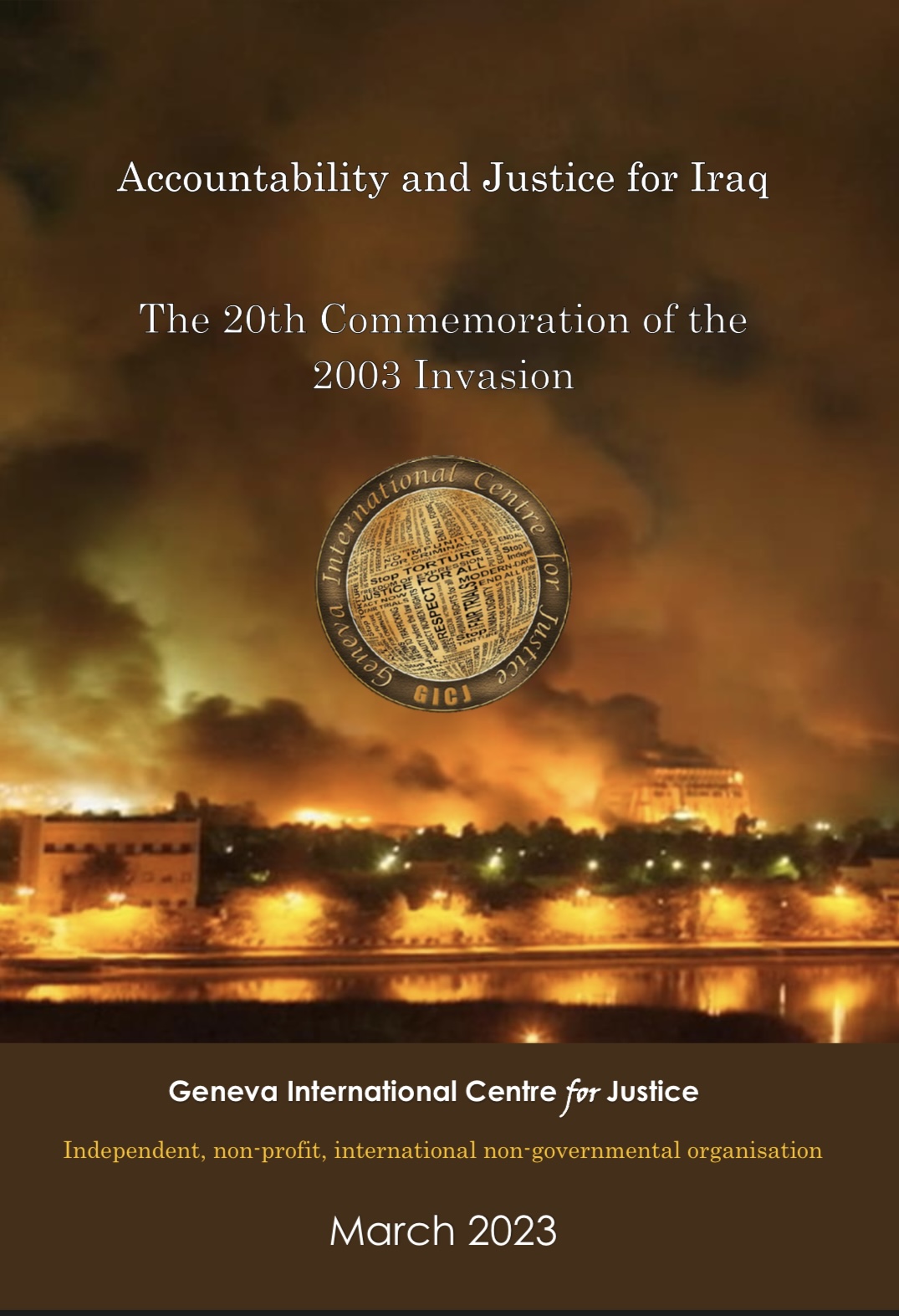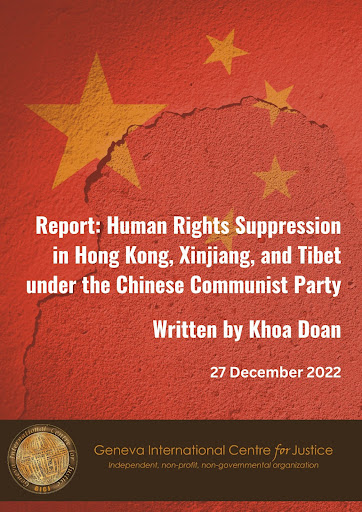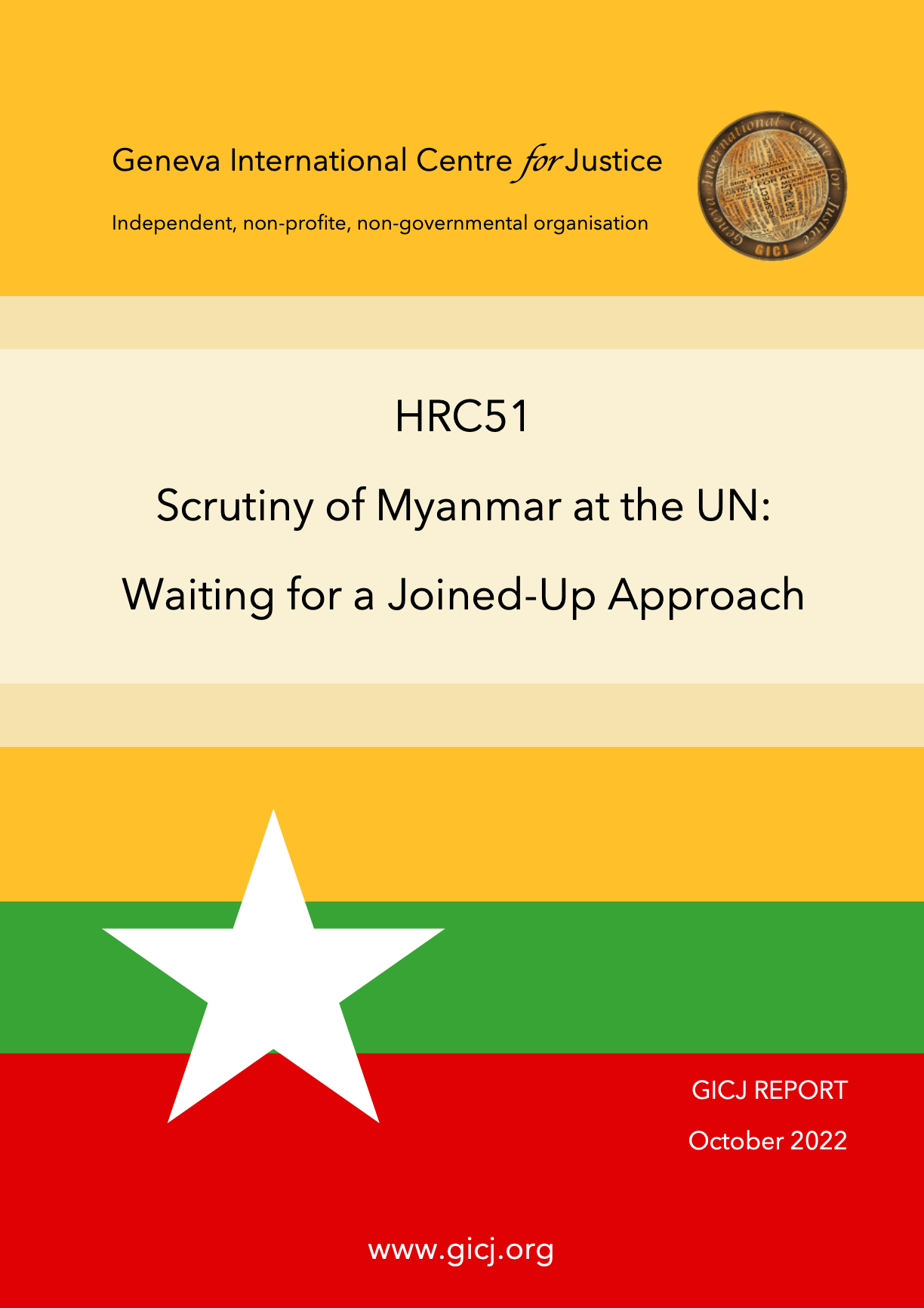Tenth anniversary of the entry into force of
The Optional Protocol to the Convention against Torture and other Cruel, Inhuman or Degrading Treatment or Punishment

On Thursday 17 November, the Subcommittee on Prevention of Torture and Other Cruel, Inhuman or Degrading Treatment or Punishment celebrated the tenth anniversary of the entry into force of the Optional Protocol to the Convention against Torture and other Cruel, Inhuman or Degrading Treatment or Punishment (OPCAT). This treaty was elaborated to compliment the 1987 Convention against Torture with the aim of establishing a system of regular visits undertaken by independent international and national bodies to State Parties where people are deprived of their liberties and subjected to this illegal practice.
OPCAT currently counts as much as 83 State Parties and although this can indeed be considered as a big achievement within the efforts of preventing torture and other cruel treatment, most of those states in which torture is practiced regularly and systematically are yet to ratify it, thus impeding the effective monitoring of the implementation of the Convention itself.
Geneva International Centre for Justice (GICJ) has a long history of advocacy against the use of torture and other cruel treatment and it is strongly committed to its elimination across the world. GICJ thus welcomes recurrences such as the tenth anniversary of the entry into force of OPCAT as an occasion to shed light on one of the most heinous crimes ever perpetrated and raise awareness of what are the available international legal instruments to eradicate this evil once and for all.
A brief history of the OPCAT
 The idea of establishing a worldwide system for inspection of places of detention can be traced back to the early 70s when a Swiss banker, Jean-Jacques Gautier, initially proposed it, inspired by the International Committee of the Red Cross (ICRC) model.1
The idea of establishing a worldwide system for inspection of places of detention can be traced back to the early 70s when a Swiss banker, Jean-Jacques Gautier, initially proposed it, inspired by the International Committee of the Red Cross (ICRC) model.1
The instruments available at the time for the United Nations to monitor the implementation of the Convention Against Torture were in fact relatively weak: it could analyse and discuss national reports of the governments in question and appoint a Special Rapporteur on Torture. But neither CAT nor its Special Rapporteur had the power to visit countries, let alone inspect prisons, without the respective government's permission. In 1987, the Council of Europe realized the original idea on a regional level with its European Convention for the Prevention of Torture. On this basis, the European Committee for the Prevention of Torture demonstrated that regular visits, reports and recommendations to the governments as well as the publication of reports offered a viable method within the framework of torture prevention and tackling.
 In March 1980, following discussions with a number of states, namely Costa Rica, Switzerland and Sweden, such proposal was refined and reflected in a draft Optional Protocol to the UN. For a long time, however, the necessary support for such an optional protocol was not forthcoming until after the adoption of the UNCAT in 1987, to avoid delaying the approval of the other treaty. The breakthrough within the United Nations finally arrived on 18 December 2002, when OPCAT was created and opened for signatures by the UN General Assembly. After ratification by 20 states, the Optional Protocol came into force on 22 June 2006.
In March 1980, following discussions with a number of states, namely Costa Rica, Switzerland and Sweden, such proposal was refined and reflected in a draft Optional Protocol to the UN. For a long time, however, the necessary support for such an optional protocol was not forthcoming until after the adoption of the UNCAT in 1987, to avoid delaying the approval of the other treaty. The breakthrough within the United Nations finally arrived on 18 December 2002, when OPCAT was created and opened for signatures by the UN General Assembly. After ratification by 20 states, the Optional Protocol came into force on 22 June 2006.
Following the entry into force of the OPCAT, in February 2007, the Subcommittee on Prevention of Torture and other Cruel, Inhuman or Degrading Treatment or Punishment (SPT) started its work. The body has a preventive mandate and its two primary operational functions as provided by the OPCAT are to undertake visits to States Parties’ detention sites and prisons as well as an advisory function on the establishment of National Preventive Mechanisms (NPM).2
Torture around the world
Indeed, the Convention Against Torture and its Optional Protocol both represent huge milestones in the field of human rights and international human right law. However, regrettably, torture is still largely practiced worldwide. This is in spite of the fact that the States might or might not be parties to the Convention and that national legislation might already contain provisions to prohibit it.
In these regards, torture and other forms of ill-treatment have been reported in at least 141 countries from every region of the world in 2014.3 Due to the secretive nature of torture, however, the real number of countries where torture is practiced is likely to be much higher. According to the 2014 global survey from Amnesty International, 79 signatories of the UNCAT are still torturing. Likewise, those 40 UN states which have not adopted the convention are practicing torture too.
The same survey revealed another interesting fact: more than a third (36%) of the respondents thought torture could be justified in certain circumstances.
For sure, the necessity for achieving national security, law and order, and the protection of national values is seemingly among one of these circumstances. Indeed, one will recall the so-called “enhanced interrogation techniques”, a sophisticated combination of words which in truth indicated some of the cruellest practices of torture perpetrated by the U.S. Central Intelligence Agency in the context of the so-called “war on terror”.
The flourishment of terrorist activities as well as the rising of new conflicts across the globe in the past few years have gone hand in hand with an increase in the use of torture as an interrogation method. Indeed, many governments subject detainees to unlawful treatments to extrapolate confessions, even whereas the individuals do not actually constitute a threat to national security or do not possess crucial information. This seems to be particularly the case in the Middle East, especially in the context of conflict and post-conflict situations.
Reports of torture and other ill-treatment in Syria have escalated since the beginning of the civil war in March 2011 as a brutal response from the authorities to the ongoing internal conflict. The practice is used routinely against those detained for their suspected involvement in opposition activities, including peaceful activists and children. There are reports that thousands have died in custody.
GICJ is particularly concerned with the abuse of detainees during arrest and interrogation In Israel and the Occupied Palestinian Territories, particularly in the case of Palestinians. Since 2001, more than 800 complaints of torture have been made against the Israel Security Agency, but no criminal investigation has been launched into any of them.
In Iraq, the phenomenon remains widespread. Despite being a State Party to the UNCAT, the country is yet to sign OPCAT, making it hard for the UN to monitor the situation in detention centres and prisons on ground. Nevertheless, it is a widely known fact that torture is regularly and systematically used in the country as an interrogational technique. Let alone the countless testimonies received by Geneva International Centre for Justice (GICJ) and other non-governmental organizations, a 2014 UNAMI report also confirmed the wide use of torture of detainees at the hands of the authorities, following initial arrest and during the investigation proceedings, “aimed at inducing accused persons to make confessions in relation to the crimes for which they have been detained”.4
Torture in Iraq is not only perpetrated by prison officers against detainees, but it is also commonly practiced by pro-government militias in the context of the “fight against ISIS”. In these regards, GICJ has received documented proof of hundreds of cases of torture against civilians following the military operations to retake cities controlled by ISIS. Among the most recent episodes, we can recall the hundreds of cases of torture being reported to GICJ in the aftermath of the military campaign against the city of Fallujah. On 2th- 5th June 2016, during the fighting in Saqlawiya, a small city 20 km west of Fallujah, roughly 650 persons released after being captured by militias, carried signs and marks of torture on their bodies. They reported that militias have been practicing all kinds of ill-treatments against them, including stabbing them with knives and other weapons and beating them up. Among them, 150 presented body fractures, such as broken legs and arms, and other 100 persons presented signs of severe burns on their back and their chests. Testimonies revealed that a few have been forced to drink their own urine while some others have been laid on the ground and ran over by shuffles.5
In Libya, this practice is rife in both state and militia-run facilities. 23 cases of deaths under torture since the end of the 2011 conflict have been reported.6 In the same way, in Egypt, during the 2011 uprising, the security forces and army used torture as a weapon against protesters.
The use of torture in Iran by authorities as a way to obtain confessions is also of great concern. Usually, this leads to death sentences in cases ranging from repression of peaceful dissent to drug-related offences to trials of minorities. The practice is common during interrogation when detainees are generally denied access to a lawyer.
There are recent allegations of torture or other ill-treatment against detainees, some of them held on “security” grounds, in other Gulf countries, including Bahrain, Kuwait, Oman, Qatar and the United Arab Emirates.
In the Asia-Pacific region, torture is also largely practiced by the police forces. This is the case in China, Fiji, Indonesia, Malaysia, Myanmar, the Philippines, India, Pakistan and Sri Lanka, where at times prisoners are even tortured to death. North Korea most possibly holds the primacy when it comes to torture: its prison camps are home to some of the most appalling practices in the world, in which hundreds of thousands of people, including children, are held in extremely inhuman conditions.
Indeed, in Africa, torture during detention as a means of extracting confessions can be considered intrinsic to the culture of security forces, and, in most cases, it is not punished by law. Among others, countries like Ethiopia, the Gambia, Kenya, Mali, Mauritania, Nigeria, Senegal, Sudan and Zimbabwe, are reported to torture detainees, including beating them, tied them in painful positions, held them in extreme weather conditions, suspend them from ceilings, sexually abuse them or subject them to other heinous forms of corporal punishment. At the same time, this phenomenon is indeed widespread among militias and other armed groups in the context of armed conflicts.
With regards to the Americas, the region has extensive legislation to prohibit torture. However, this practice is still rife, especially in Mexico, Chile and Venezuela, where abuse by the security forces is routine in dealing with public demonstrations.7
The importance of OPCAT
Whereas the purpose of the Convention Against Torture is mainly of tackling torture and other acts of cruel, inhuman or degrading treatment or punishment through a regular review of interrogation rules and training techniques of all people involved in the arrest, custody, interrogation, detention or imprisonment of any individual, the OPCAT develops preventative measures which reinforce the protections the Convention confers upon people in detention.
Without OPCAT, a meaningful implementation of UNCAT cannot be guaranteed since the main information available does not derive from on-site inspections and first-hand information but rather from reports redacted by state parties, inquiries and the consideration of individual or inter-state complaints. This, unfortunately, means that State Parties which make large use of this practice, in stark breach of the very same law they ratified, will not provide genuine or truthful information on the matter. To some extents, this makes UNCAT rather obsolete without an appropriate monitoring mechanism, that is the OPCAT.
State parties to OPCAT are in fact required to grant the SPT unrestricted access to relevant information, to all places of detention and the ability to have private interviews. By the end of 2015, the SPT had already visited 37 countries and issued many relevant recommendations, proving that OPCAT can be an effective deterrent to abusive practices.

Source: http://www.apt.ch/timeline/timeline.html
Significant improvements can be noted in countries that have ratified OPCAT and created an effective NPM, especially for what concerns increasing transparency and promoting accountability. Thanks to the documentation of poor conditions by NPMs and the SPT, some places of detention have been closed and, in some cases, conditions of detention have improved, particularly in relation to adequate standards of health, food and housing. Abusive detention practices, such as the use of inherently degrading or painful means of restraint, invasive body searches, or solitary confinement, have been reduced.
In other words, GICJ believes that OPCAT is an indispensable instrument to compliment the purposes of the UNCAT, without which its effectiveness would be largely compromised. It is highly recommended, therefore, that all state parties to the UNCAT ratify OPCAT with immediate effect. Nevertheless, simply becoming a state party is not enough: all countries need to engage in a transparent and genuine way, establishing effective NPMs, following inclusive and participatory consultations.
Conclusion and recommendations
Over a decade since the entry into force of the OPCAT, torture and other cruel, inhuman or degrading treatment or punishment are still widely practiced across the world, as we have learned in the previous sections. It is a huge shame for the international community and the human race in general to allow practices as such to be carried out and institutionalised, to be tolerated or encouraged.
In the same way, it is just as shameful to not take action against the violators of international law. The very reason behind the birth of intergovernmental bodies such as the UN is to impede that the atrocities and bloodshed that history has witnessed be repeated by a system of mutual monitoring. If states were truly committed to achieve a world free from violence, they would use all instruments created for this very same purpose, one of them being the OPCAT, to ensure that international law is observed by all states. However, sadly, the evidence demonstrates that many governments seem to be less committed to the protection of human rights than they claim on paper. In occasion of this important anniversary and in light of its constant commitment to the eradication of torture and other forms of cruel treatment across the world, GICJ, therefore, calls on all member states to the United Nations, and in particular, to all member states of the Human Rights Council and State Parties to the UNCAT to:
- Ratify the Optional Protocol to the Convention against Torture and other Cruel, Inhuman or Degrading Treatment or Punishment without further delay, if they have not yet done so;
- Engage with the Subcommittee on Prevention of Torture and other Cruel, Inhuman or Degrading Treatment or Punishment in a transparent and constructive manner;
- Create National Preventive Mechanisms as provided by the Protocol following inclusive and participatory consultations and guarantee their independence and access to resources;
- Take the necessary measures to comply with the recommendations made by both the CAT and the SPT, including amending national legislation, if necessary, to comply with international standards on torture;
- Establish accountability mechanisms to ensure that all allegations of torture are investigated and perpetrators brought to justice;
- Promote the ratification of the Convention against Torture and other Cruel, Inhuman or Degrading Treatment or Punishment and its Optional Protocol and the values and principles they set forth for the years to come.
1 ICRC delegates have been conducting visits to prisoner-of-war camps, in order to inspect how detainees were treated and their living conditions since the First World War.
2 See more: http://www.ohchr.org/EN/HRBodies/OPCAT/Pages/OPCATIntro.aspx
3 See more: https://www.amnesty.org/en/latest/news/2014/05/amnesty-international-global-crisis-torture-exposed-new-worldwide-campaign/
4 See full report: http://www.ohchr.org/Documents/Countries/IQ/UNAMI_HRO_DP_1Oct2014.pdf
5 For more information: https://www.gicj.org/index.php?option=com_content&task=view&id=483&Itemid=41
6 See more: http://www.amnestyusa.org/sites/default/files/act400042014en.pdf
7 Ibid 6
Overview of GICJ participation at Treaty Bodies
Committee on Economic, Social and Cultural Rights - 56th session - from 21 September to 9 October 2015:
Committee on Enforced Disappearances - 9th session - from 7 to 18 September 2015:
Committee Against Torture - 55th session - from 27 July to 14 August 2015:
Committee for the Elimination of Discrimination Against Women (CEDAW) - 57th session - February 2014:







